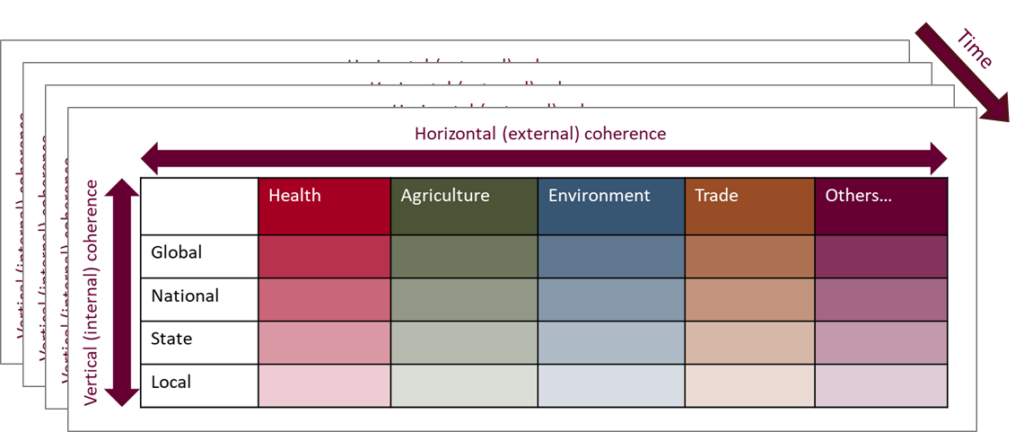Policy coherence and the Australian food system
The benefits of policy coherence
Australians expect a lot from our food system, and our aspirations for Australia’s food system are growing. Meeting growing aspirations for Australia’s future food system is going to depend, at least in part, on more coherent and connected policy across the range of sectors and actors involved in the food system. Food policy spans all the processes of producing and distributing foods, from the natural resources like water and soils that support agricultural production, through the manufacturing and distribution of food to consumption and its impacts on nutrition and human health.
Many portfolios across Australia’s commonwealth and state governments play a role in food policy, and coordination mechanisms exist, but are patchy across the food system. Policy coherence can support deeper coordination across portfolios, as well as enable the anticipation and management of ‘surprising’ emergent interactions from the food system.
Analysing policy coherence

Policy coherence analysis can be conducted over time and across portfolios (horizontal coherence, for example, from environment to health) and jurisdictions (vertical coherence, for example, national, state and local)
Food policy coherence is about the degree to which policies across the food system reinforce or contradict each other in meeting collective societal aspirations[1]. The degree of coherence required will depend on what these aspirations are and how they change over time. It will often involve trade-offs with the resources available to pursue coherence.
Policy coherence can be analysed using a range of methods. Discourse analysis can be used to compare the goals of different food-related policies, the reasons used to advocate for policy goals and the actions seen as acceptable to achieve those goals[2]. The level of effort invested in analysis can be varied to match the degree of coherence required. Rapid qualitative assessments can be used to identify the most prominent policies across the food system, and provide preliminary assessments of their coherence.
Our next steps
Food System Horizons are working with policy colleagues to map food-related policy interactions and explore opportunities to improve policy coherence. The intent is to support policy advice to food-related ministers and contribute to evidence-based evaluation of more holistic approaches to food governance, such as possible future food portfolios and national food strategies.
The Australian Food System Policy Dashboard has been developed as a first step to map policies that shape the food system. This provides a first step towards more granular analysis of policies that could be used to assess coordination and coherence between policies across departments.
[1] Parsons, K. & Hawkes, C. 2019. Brief 5: Policy Coherence in Food Systems. Rethinking Food Policy: A Fresh Approach to Policy and Practice. London: Centre for Food Policy, University of London.
[2] Fairclough, I. & Fairclough, N. 2012. Political discourse analysis: A method for advanced students, London, Routledge.
